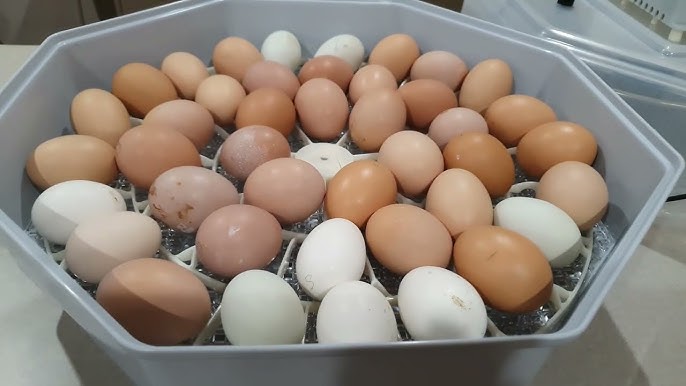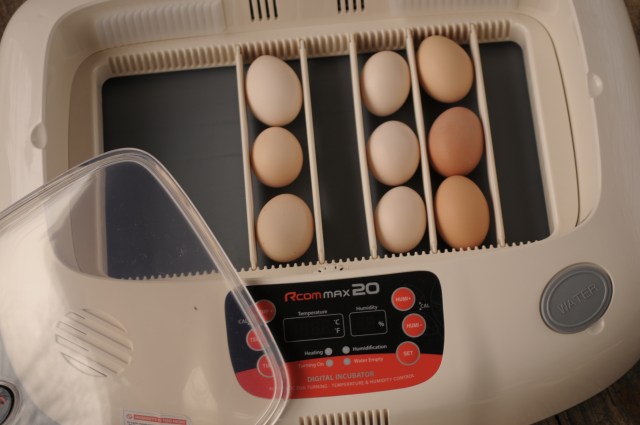The ideal temperature for chicken incubator is crucial for ensuring successful hatching. Maintaining the right temperature is vital for developing embryos. Whether you’re a seasoned farmer or a hobbyist, understanding this can make a significant difference. Let’s delve into how temperature impacts the incubation process and what you can do to achieve optimal results.

Why Temperature Matters
Temperature plays a pivotal role in the incubation process. It affects embryo development, hatch timing, and overall success rates. A consistent and optimal temperature ensures that the embryos develop healthily. Deviations, on the other hand, can lead to failed hatches or deformed chicks.
Understanding the Ideal Temperature
The ideal temperature for most chicken incubators is around 99.5F (37.5C). This temperature mimics the conditions under a brooding hen. It’s essential to keep this temperature constant to prevent any disruptions in the development process.
Factors Influencing Temperature Control
Incubator Type
The type of incubator you use can significantly impact temperature control. Forced-air incubators have fans that distribute heat evenly, maintaining a consistent temperature. Still-air incubators, however, might require more vigilance.
Location Matters
Where you place your incubator can affect temperature stability. Ensure that it’s in a room with a stable temperature and away from direct sunlight or drafts. External factors can cause temperature fluctuations, impacting the hatching process.
Monitoring Temperature
Using Thermometers
Invest in a reliable thermometer to monitor the incubator’s temperature. Digital thermometers provide precise readings and are easy to use. It’s advisable to have a backup thermometer to ensure accuracy.
Regular Checks
Regularly check the temperature, especially in the first few days. This period is critical for embryo development. Any deviations should be corrected promptly to avoid potential issues.
Humidity and Its Role
While temperature is key, don’t overlook humidity. Humidity levels should be around 50-55% for the first 18 days and 65-75% during the final days of incubation. Proper humidity ensures that the chicks can hatch easily.
Adjusting Humidity
Use water trays to manage humidity levels. Adding or removing water can help maintain the desired humidity. Ensure that the water is clean to prevent any bacterial growth.
Common Challenges and Solutions
Dealing with Fluctuations
Temperature fluctuations can occur due to power outages or faulty equipment. Have a backup power source and regularly service your incubator to prevent such issues.
Overheating Concerns
Overheating can be detrimental. If the incubator overheats, open the lid slightly to allow heat to escape. Ensure this is done only briefly to prevent cooling the eggs too much.
Choosing the Right Incubator
Selecting the right incubator is essential for maintaining the ideal temperature. Consider factors like size, type, and features. More advanced models come with built-in temperature controls and alarms.
Budget Considerations
Your budget will also influence your choice. While more features often mean a higher price, they can save time and improve hatch rates. Balance your needs with your budget to find the best option.
Practical Tips for Success
Pre-Incubation Preparation
Before starting the incubation process, ensure that your incubator is clean and functioning correctly. Test the temperature and humidity settings a few days before placing the eggs.
Egg Selection
Choose fresh, clean, and fertilized eggs for incubation. Avoid eggs with cracks or irregular shapes as they are less likely to hatch successfully.
Additional Resources
For more detailed guidance on using incubators, you can visit this external resource. Understanding all aspects of incubation will improve your success rates.
Additionally, you might find information on coop cleaning and herb benefits for chickens useful for overall poultry care.

FAQs
What is the ideal temperature for a chicken incubator?
The ideal temperature is around 99.5F (37.5C) for optimal embryo development.
How do I maintain the correct humidity?
Use water trays and regularly monitor humidity levels to maintain the correct environment.
What should I do if the incubator overheats?
Briefly open the incubator lid to let excess heat escape, ensuring you don’t cool the eggs too much.
This article contains affiliate links. We may earn a commission at no extra cost to you.











